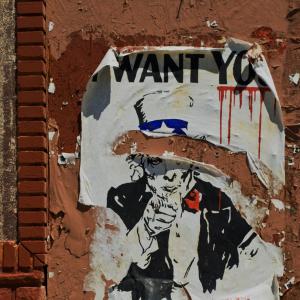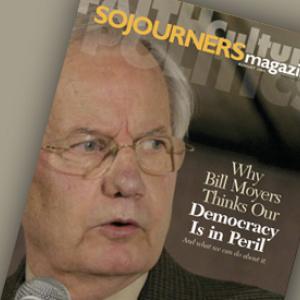
Jorge Mariscal is the grandson of Mexican immigrants and the son of a U.S. Marine who fought in World War II. He served in the U.S. Army in Vietnam and currently teaches at the University of California, San Diego.
Posts By This Author
The Poverty Draft
Do military recruiters disproportionately target communities of color and the poor?

Craig Wactor / Shutterstock
RECENTLY I STUMBLED upon an online exchange about why young people join the military. One participant who claimed to be "on the Left" made the following assertion: "Disenfranchisement is the reason why kids join the military and they know going in that it gives them the opportunity to legally and with the blessing of our government kill, torture, and hate other people in order to give an outlet to their hostilities toward society."
Among the many youth I have met over the years as an educator and counter-recruitment activist, I have never met anyone who enlisted so that he or she could "kill, torture, and hate." While "disenfranchisement" may be an accurate word for why some youth enlist, the claim that working-class youth sign up so that they can "legally kill and torture other people" at the very least betrays a profound misunderstanding of why young people join the "all-volunteer military" and at worst reveals biases that separate Americans due to differences of class and race.
On the opposite end of the political spectrum, the conservative claim that most youth enlist due to patriotism and the desire to "serve one's country" is equally misleading. The Pentagon's own surveys show that something vague and abstract called "duty to country" motivates only a portion of enlistees. But the vast majority of young people wind up in the military for different reasons, ranging from economic pressure to the desire to escape a dead-end situation at home to the promise of citizenship.
WHEN MANDATORY MILITARY service ended in 1973, the volunteer military was born. By the early 1980s, the term "poverty draft" had gained currency to connote the belief that the enlisted ranks of the military were made up of young people with limited economic opportunities.
Today, military recruiters react angrily to the term "poverty draft." They parse terms in order to argue that "the poor" are not good recruiting material because they lack the necessary education. Any inference that those currently serving do so because they have few other options is met with a sharp rebuke, as Sen. John Kerry learned last November when he seemed to tell a group of college students they could either work hard in school or "get stuck in Iraq."
President Bush led the bipartisan charge against Kerry: "The men and women who serve in our all-volunteer armed forces are plenty smart and are serving because they are patriots—and Sen. Kerry owes them an apology."
In reality, Kerry's "botched joke"—Kerry said he was talking about President Bush and not the troops—contained a kernel of truth. It is not so much that one either studies hard or winds up in Iraq but rather that many U.S. troops enlist because access to higher education is closed off to them. Although they may be "plenty smart," financial hardship drives many to view the military's promise of money for college as their only hope to study beyond high school.
The New 'New South'
Latin American immigrants are changing the U.S. political landscape.
